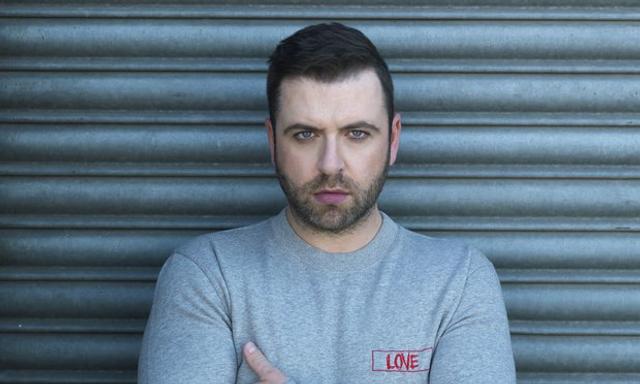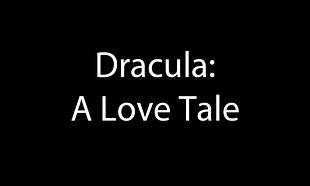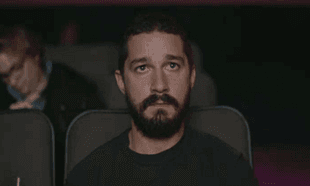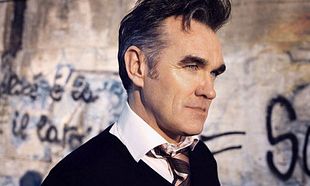Markus Feehily is the third member of Westlife to go solo, but it's taken him since the boyband's split in 2012 until now to put an album out.
We recently sat down with the man formerly known as 'Mark from Westlife' to talk about his new solo album 'Fire', what he's been up to over the last few years, and finally feeling in control of his own destiny after 15 years of being micro-managed.
Check back tomorrow for part two of our interview with him.

You've finally taken the leap from the world of boybands with Westlife to fully-fledged solo artist. Is this the first time that you've felt properly in control of your career?
Well, I think Westlife were in control of their career in a different way. We were in control in the sense that we could have wrote an album on bloody guitar, and recorded it ourselves and produced it ourselves; but it probably wouldn't have been any good. (laughs) I think we made the controlled decision to hand over the musical control to other people, because Westlife's music was part of a team of people who've put it together. We were more singers, really, in Westlife, than writers. At the end of Westlife I did get more involved, but with those songs it wasn't like 'Oh, you're in the band so you could write any old song and it'll get on the album.' I said to the lads 'Look. I don't want there to be any awkward moments where we put a song on the album just because I'm in the band, and not because it's good enough.' So I used to email the boys demos – just like any other songwriter would email their demos – and say 'What do you think of us?'. Thankfully – especially by the end – I kind of started doing a reasonably decent job of writing Westlife songs, but it was still along the lines of 'Okay, what sort of a middle-eight should we have?'. It was all writing under the brief of a certain formula, say.
With that in mind, how did you put the wheels in motion for your own solo album?
With this album, it was scary at first but then I got the bug for it after a few sessions. I was like, 'Where do you even start?'. Then I realised that if I wanted to hear what my solo sound is, I needed to go into a studio and write a song and listen to it. Obviously it gets more complex down the line when you have to start choosing certain genres and routes, but it was definitely me taking back control. To be honest with you, more than anything, it was me just fulfilling my desire to be creative. And also, I do love singing more than anything else in the world so the idea of me making an album just seemed like the perfect thing for me to do.
You took some time off after the band split in 2012 - when did you realise that you actually wanted to release a solo album?
It was something that I wanted to do for quite a long time. All the vocal arrangements and harmonies on my album are the kind of thing that I've been doing since I was 14 years old – but there was never a right time to apply it to the music that I was involved with, because it wouldn't have sounded right with Westlife. So it was almost like 'Finally I get to go into the studio and put all these ideas that I have down and record them, and see what it sounds like in a professional studio.'
Do you remember what the feeling was in the band, immediately after splitting up?
Of course, everyone was worried. Everyone thought 'Are we gonna wake up tomorrow morning and think 'What the hell are we after doing? We're mad, throwing this away.' It's more difficult ending something on a high than it is when you're down in the dumps, or whatever. We finished on one of our biggest-ever tours; we finished in a stadium. So when you finish on a high, you think 'Jesus, I hope this is the right thing to do.' But you have to take that risk and you have to follow your gut. So I've never really felt like it was the wrong idea, to this day. I've never really had that moment and I don't think I ever will. I know in my heart and soul that Westlife finishing was absolutely the right thing. For me, personally, anyway.

What's with the name change – why go from Mark to Markus?
I was on Nicky [Byrne, his former Westlife colleague and now 2FM presenter]'s radio show earlier and I was just saying to him how he used to call me Markus and a lot of people did, and still do. People around me have called me Mark and Sparky and Spartacus and all sorts of names, so it's not really a serious thing – but in my head, I was able to justify it by saying that it's representing a bit of a change.
You spent time writing and recording in LA – are you there on a semi-permanent basis now?
No, I only went to LA for literally three months and then I came straight back to London and Sligo. I spent a lot of time in Sligo during the year off, and I spent quite a lot of time in London, as well. The thing with London was to make this particular album I had to be in London, because I wanted to work with a particular group of people who were mostly from London. In saying that, I've written three songs with a guy from Dublin called Mark Meegan and I wrote a lot of songs in Sligo – especially the earlier ones, like 'Simple Love' and 'Sirens', because I had backing tracks and didn’t need to be in the room with the producer. I think it would have been impossible to make this album in three months, or six months, or a year. There are two or three songs on the album that were only written about six months ago, so yeah – I didn't intentionally leave it so long. But if you look at a documentary of the making of most albums, they usually take two or three years.
You must have been used to turning around albums pretty quickly, in your old job...
That's the crazy thing about Westlife – we had thirteen albums in fourteen years. We were literally making an album a year. The year that we didn't make an album, we had to fight to get that year off. We had to do so much convincing and everyone was telling us 'Your fans will be gone when you come back'. We said 'Well, if they're gone after nine years and nine albums, then so be it – but I hope and believe that they won't be gone.' And they weren't gone – they were there when we came back. That's an insane turnaround, though; this one was more a normal amount of time in terms of what it took to make.
Some of the songs were written after your long-term relationship broke up. Is it difficult to revisit those feelings night after night when you're on tour?
My real thoughts and feelings are buried in there somewhere, but it's now just a song and music. Sometimes it's like 'Shit, I have to create this live on a stage, right now' – so you're not thinking what it's really about all the time. There is a song called 'Back to Yours' on my album, and that's probably the deepest, darkest, most personal song on it. There were parts when I was singing it in front of an audience back in March when I did some gigs, and I was like, 'I cannot believe I'm singing this song to people' because it was so personal (laughs). But I feel like that's been my sacrifice on the album. You don't see me in the press talking about my personal life and I don't go out and try to be in the papers and try to be famous. If you want to get to know me and get under the surface, then listen to my album. That's when I don't mind opening up to people – rather than telling everyone my business all day, every day in the papers. I open up in the studio.









































































